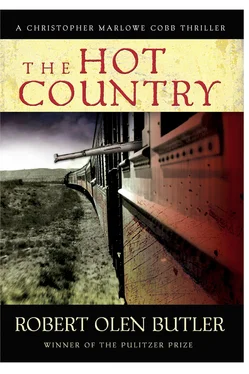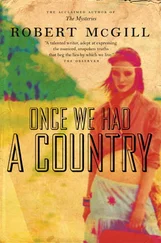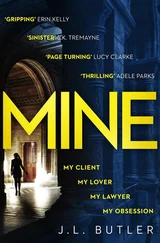And so I found myself now on Basin Street, the southern boundary and main thoroughfare of Storyville, with a run of bordellos three and four stories high and a block deep, but all of them with mansion facades, a mash of cupolas and towers and balconies from Queen Anne and Queen Victoria and Second Empire styles. And among them were the lower-slung saloons and dance halls and cabarets, most of them selling women too, a bottom floor providing song and dance and whiskey to smooth the transition to the upper floor. And on the opposite side of the street, just about everything done on this side was illegal, with a three-block passenger shed running into the Southern Depot on Canal Street, everyone stepping off a train of the St. Louis & San Francisco Railway getting a vivid introduction to the city of my birth.
And I jostled through the men who staggered and drifted and prowled on Basin: the lonely soldiers, and the slumming parties of uptown boys, and the pairs of pals or of brothers or of fathers and sons, and the isolated ones, alone and full of desire that they could express nowhere but here. All of these men working up to a woman. And I just walked for a time from the Canal Street end of Basin — if Mother was singing in Storyville, it would be on Basin Street, I was sure — and the music from inside the establishments jumbled together outside, the Negro perfessers with upright pianos and the cornetists and the brass combos, and from out here in the street, the spasm bands, with washboards and wooden-box fiddles and Confederate bugles. All of them playing jazz over the din of male voices.
And now and then I heard a fragment of a singing voice. A woman singing. From a cabaret. From a saloon. None of them Mother. And I was thinking I’d made a big mistake to come here. I thought if I did find her, I’d just pay back her five dollars and go. But no. I’d just slip quietly away. I’d been happy for the chance to be with the octoroon girl. My mother had known what I wanted, what I needed, and she made sure I had it. And if now she saw herself cast in a role in the vast melodrama of Storyville, I was not going to cast myself in it with her. She was not asking me to. She’d even warned me not to come here. But what did she think she was doing?
And maybe I was entirely wrong. Maybe I’d misread the clues in her telegrams. Maybe she was not even here. Maybe she was somewhere else in New Orleans.
Still, I walked on, going “Down the Line,” as they called the cruise in this direction along the brothels of Basin. I crossed Bienville Street into the last block, which would end, I knew, at St. Louis Cemetery Number 1, where everyone lay above the ground, in concrete or marble, so when the heavy subtropical summer rains came, as they did in this town, the bodies wouldn’t rise from the earth and float away. I passed Willie V.’s place without looking at it. And halfway along the block, from a wide-fronted vernacular building with no stoop and made for music and booze and sex, came a piano and a voice that I knew, even as a hawker stepped from the doorway into the midst of the passing gaggles of men and said my mother’s name. Just the one name. He said, loud enough to be heard by all the men around him but still conversational, persuasive, “The famous Isabel is singing right now, gents. Straight from Broadway. And backing her up are the prettiest cabaret girls in The District. Just step through that door.”
I stepped through. Others did too. The place was jammed with men front to back. They were remarkably quiet for Storyville. I slid immediately away from the door but parallel to the street, not going any farther inside. On the wall to my right was a long cherrywood bar with a mirrored top. On the opposite wall was a wide staircase. Like showgirls on a stage set, the house girls were draped all the way up the balustrade. They wore ruffled camisoles and high stockings and nothing in between. Over everything and everyone stretched a ceiling full of electric bulbs making it bright as Louisiana noontime. And at the far end was a raised platform with an upright piano where a Negro in a pearl-gray derby and checkered vest played sweetly and sadly, in the solo moments putting in half a dozen notes for every one note you’d expect.
And at the front edge of the platform was my mother, her hair stacked high on her head and sparkling with jewels, and she was wearing a long, jade-green gown, her décolletage fringed in black feathers. And she was why the men were almost entirely silent. Her voice — she had a lovely, rich, vibrating singing voice, my mother — her voice filled the place. She sang, “Baby won’t you please come home, ’cause your mama’s all alone.” And my mother didn’t mean Mama . She honkytonked up her voice, rasping that word, picking out some man I couldn’t see in a table close to the platform: It was to him she sang your mama . And it was as if she had just given this audience that she utterly commanded permission to laugh. They did. From the street front of the place all the way to the stage, they laughed raucously and then instantly went quiet again to hear her. And she came down off the platform as she sang, “I have tried in vain never more to call your name.”
I lost sight of her. Men immediately before me stood up, trying to see my mother as, I imagined, she played the crowd, moved among them, brushed against them, smelled them, these men who were out simply for a buzz and a whore but were surprised and excited to find Isabel, a great Broadway actress, singing as if for each of them individually, “When you left, you broke my heart, because I never thought we’d part.”
This was a mistake, coming here. And why should I have begrudged her this audience adulation? It was what she lived for, always. And if it was a selective audience, if it was not an easy one to win over — or even to silence — then all the more satisfying. And for them to be entirely riveted on her even as half-naked young women decorated the stairway nearby, waiting to open themselves to any man in this audience at any time: This was a standing ovation, a dozen curtain calls, an armful of long-stem red roses; this was eternal youth.
She sang the growling, heartfelt climax, “Every hour in the day, you will hear your mama say, Oh, baby, won’t you please come home.”
I was not a baby any longer. She was not a mama. We neither of us had a home to wait in or to come home to. We never had.
The song was over. The crowd was cheering now. They all rose and they cheered, and derbies were flung into the air, rising into the bright perpetual day of the electric lights above us.
I wished to move. I wished to walk out the door now and go find a hotel and sleep in a bed and put all this out of my mind. I also wished to make my way toward the stage and guide my mother over to the bar — start there, if I must — buy her a drink and then persuade her to leave this place. But those two opposite impulses seemed to have exactly the same motive force, because I did not move at all. In either direction. I simply stood there watching as some of the men settled back into their tables and some of them headed for the staircase.
I could see her again. I watched her, still near the stage, as she bent to a table, the one she’d pointed to, she bent to the derbies there and talked with her typical post-performance animation. She said something grandly and the derbies laughed. And she watched them laugh. And she watched one of them particularly. And when they were finished laughing, she leaned close to that man, very close, almost as if to kiss him, but at the last moment she moved her face to the side of his and she said something directly into his ear. She drew back and he was rising instantly, and the other men had watched this and I could not hear the sounds they were making but they were clearly in envious awe of the man, who shot the most animated of his companions a sharp, silencing look and they all abruptly turned their heads away.
Читать дальше












